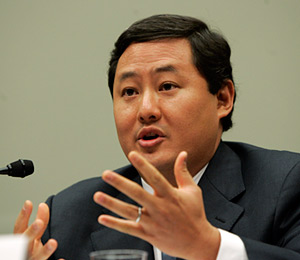My t.v. sits there, mute and uncomplaining. Or mute and seething. If a t.v. could, you know, uncomplain or seethe.
Do I liberate it?
I’ve watched t.v. twice since I’ve moved in, and both times it was chore: I don’t have cable, so the reception was more snow than picture. I’ve thought about getting the Roku box and streaming movies through Netflix, but beyond my initial research, I’ve done nothing about it.
So do I sell or give away the t.v.?
It’s in decent shape, but it’s also a few years old, and the big ol’ console type—not a sleek, new flatscreen.
I dunno. If someone would offer me 25 bucks, I’d probably unload it.
A plant would fit nicely in its spot.
____
On my continuing inability to write that elegant piece on abortion, or to patch together anything coherent on Israel and Palestine: why oh why?
It’s not as if I don’t have well-formed ideas on either issue. On abortion, for example, I think that it’s a no-brainer that it remain legal, but that morally, it’s murky. And that it’s murky means that, for some people, it’s not a no-brainer that it remain legal. I think it’s silly to expect all women to feel guilt or shame or regret for terminating a pregnancy, and silly to expect that no woman would feel guilt or shame or regret for terminating a pregnancy.
But wait! There’s more! There’s freedom and equality and sex and contraception and men and motherhood and meaning and. . . all that.
So much to write.
Similarly with Israel and Palestine. Why should I take side other than that of peace and pluralism? Why would I support a two-state solution, one which implies—no, practically requires—a single-identity set of states, which in turns would necessarily involve some version of ‘transfer.’
As in ‘ethnic cleansing’. As in a crime against humanity.
Hannah Arendt (who was and is not beloved in Israel) made the argument in favor of a Jewish homeland—but not a Jewish state. Edward Said (who has his own unbeloveds) ended up supporting the goal of a single state as the most just solution.
The current situation is unjust. A two-state solution would simply reify this injustice, and in so doing, make such reification irresistible. In other words, the injustice involved in bringing reality to the two states would itself become an argument in favor of the process of states-making itself.
Perversity. The entire damned situation abounds in perversity. Again, so much to say.
Too much to say, perhaps. Perhaps that’s why I am unable to say it.
____
I am temporarily working three jobs again, but the third job will soon go away for the spring and probably the summer.
The second job (teaching) is secure through December, and probably the following spring.
Job1 is the current angst-generator. It’s a retail position, not difficult, but low-paying and irritating in the usual way of retail positions. It sucks up time, both on the job and in travel. And did I mention the customers?
But it has had one great benefit, however: benefits. Most part-time jobs do not offer health or other benefits, but this one does.
This has kept me working there even when I thought AAAAAAAARRRRRRGGGGGHHHHHH! That, and the need to pay rent.
But I now qualify for health care through Job2, and am in the process of switching my coverage. Wrinkle one.
Wrinkle two: My store is in the midst of a shake-up, and not all of us currently employed will be offered jobs past June. I went through the process to keep my job, but I’m not at all sure that I do want to continue working there.
This is different from the AAAAAARRRRRRGGGGGHHHHH reaction. I’m getting more courses, and while the pay for adjunct teaching is lousy compared to a tenure-track job, it’s great compared to retail. And there’s a good chance I’ll be able to continue working off-and-on at Job3—a job which also pays more than Job1, and is closer to home.
The big reason to leave, however, is that I have no damned time to write. I wrecked my life to leave academia, and wrecked my finances to move to New York to write—which I have, in my first two years here, managed to do. In the midst of my third year, however, I haven’t been able to grab those chunks of time necessary for writing.
Yeah, I have time to blog and to web-surf and to play spider solitaire, but none of these activities requires the particular kind of concentration I engage in while writing. These are filler activities, wind-downs—only now I’m winding down from my commute or course prep, not from cranking out a crucial scene.
And I have a new idea. I have characters and a rough sense of where I want to begin. I want to find out what happens. And I don’t have time to write to find out what happens.
The economy? Oh, yeah, that. How could I give up a job in this economy? Is wanting or needing to write enough? Yeah, the check’s small, but it’s not nothing; how could I give that up?
Perhaps I won’t make the cut, which means the decision is out of my hands. But this is my life, and it should be in my hands. I should have to figure out what to do.
Should. Not that I have, yet.





